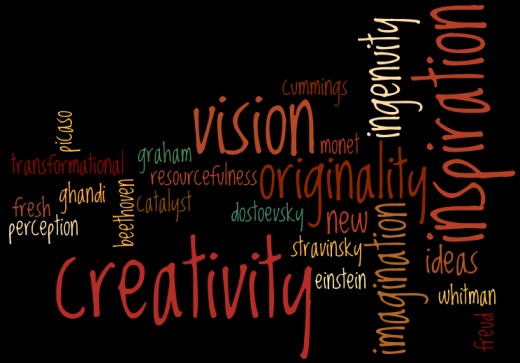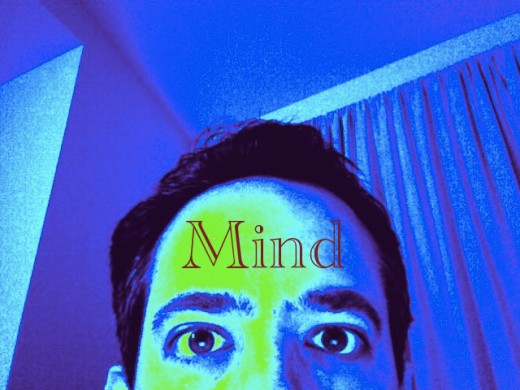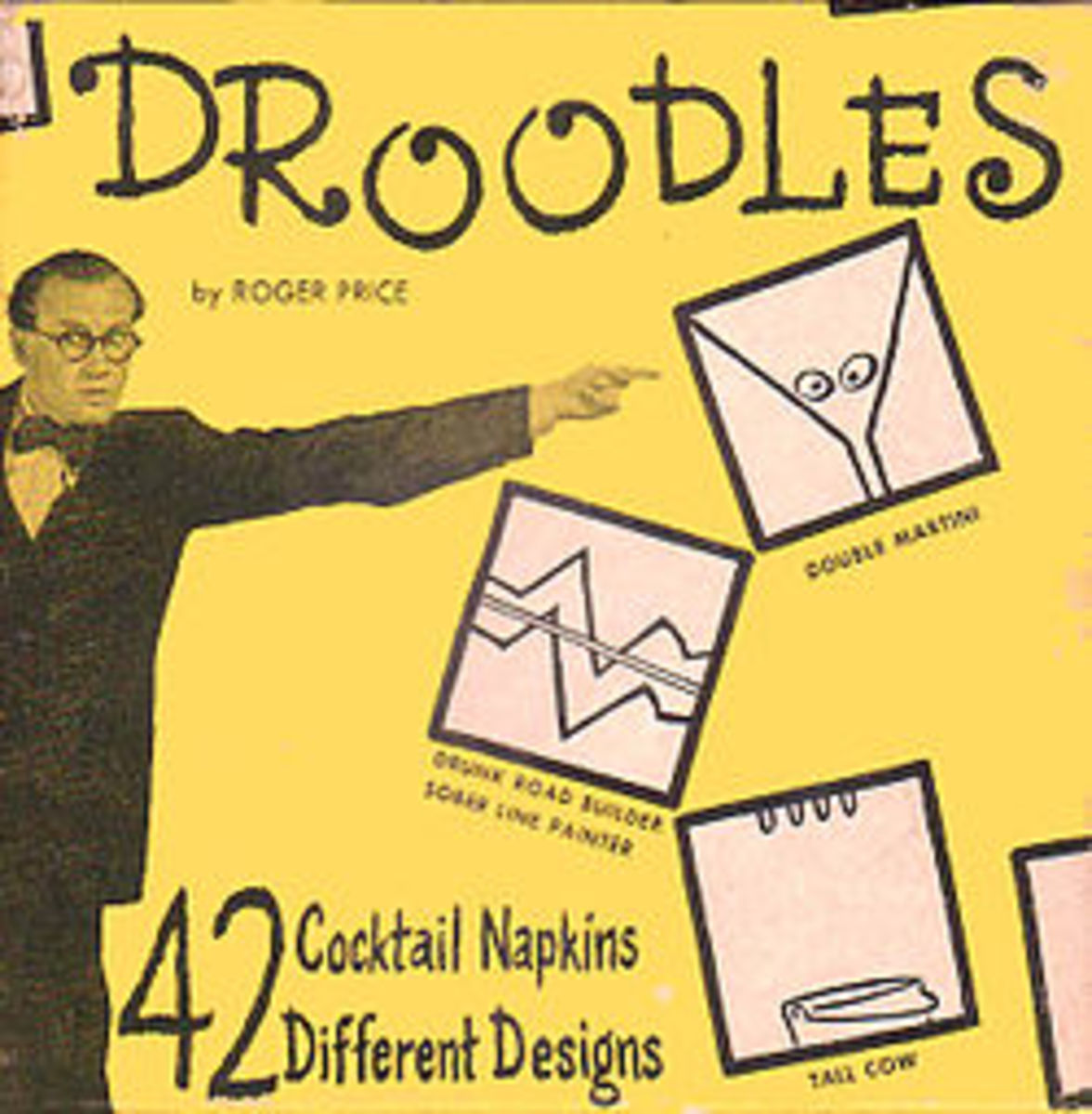On Creativity and Intelligence
On Originality as Intelligence, the Mind-Body Separation and Windows for Change:
Note: This is part seven of a series of articles that examine the relationship between music and the brain by integrating scholarly work on the philosophy of music with research in the psychology of emotion and intelligence. Part seven examines originality as intelligence, the mind-body philosophical problem and windows open for change in understanding the place of music in intelligence. All parts can be read independently, though they may make references to other parts. Please click here for an overall abstract and links to the rest of the parts in the series.
Contents:

Notes on Originality and Intelligence
Many discussions of intelligence refer, either directly or indirectly, to the ability to deal with novel situations and make use of information in new ways. This is a significant point that will be developed further in later discussion, but, for the moment, a brief introduction to the idea will suffice. Gardner and Sternberg deal with the issue most directly. For Gardner, the deep understanding of the disciplinary learner, as well as the highest level of development in each of his proposed intelligences, is defined by the ability to use information and skills already learned in both traditional and original ways in order to bring insight to unfamiliar situations.[1] Sternberg devotes a full chapter in Beyond IQ to discussing intellectual giftedness in terms of creative insight and the ability to deal with novelty.[2] The overall point of both is that there is something significant about the ability to fully understand a given set of skills, information, and processes in their traditional use and yet be able to use that understanding to inform old understandings in new ways, to bring insight to new situations, and to create entirely new forms of understanding. This is intelligence in its highest form. Informed and insightful originality, therefore, is well recognized as among the most important aspects of intelligence.


Mind and Body: An Important Philosophical Shift
Dualism:
Underlying many of the newer theories of intelligence, particularly Gardner’s MI Theory, is a fundamental philosophical change of opinion regarding what human abilities can qualify under the heading of intelligence. As we have seen, the traditional view of intelligence and, to a certain extent, the views of Piaget and the information processors focus primarily on rational thought, as well as certain linguistic, and mathematical understandings. This view of intelligence falls comfortably in line with the philosophical theory known as dualism. Dualism holds that the mind and the body are separate entities, with the mind being intelligent and the body being dumb.[3] John Dewey suggests that dualism views the physical activities of the body as “an underlying substance that performs the activities in question” while the mind is viewed as “an independent entity which attends, purposes, cares, notices, and remembers.”[4] Under this philosophy, the mind is viewed as receiving information from the body, consciously processing it, and then sending orders back out to the body. Intelligent behavior only takes place in the conscious processing stage of the mind. Purely mental activities like rational thinking, as well as reasoning in mathematics and language, come through quite naturally as the central aspects of intelligent activity by this view. Gardner points out, however, that this philosophy has an unfortunate corollary:
This divorce between the “mental” and the “physical” has not infrequently been coupled with a notion that what we do with our bodies is somehow less privileged, less special, than those problem-solving routines carried out chiefly through the use of language, logic, or some other relatively abstract symbolic system.[5]

Materialism:
The philosophical view of Materialism has challenged this notion, however. Materialism holds that the relationship between the mind and the body is so closely integrated that to posit a distinction between them is meaningless.[6] As Joseph O’Connor puts it, “Our thoughts are intimately linked with bodily states. It is impossible to treat them separately in any meaningful way. Internal and external responses form a unity.”[7] Physical activity, then, is on an equal and integrated level with the “mental” faculties of the mind and can be regarded equally as an aspect of intelligent behavior.
A brief example may be useful in distinguishing the precise difference between these two philosophies. Under the views of materialism, and particularly under the conception of bodily-kinesthetic intelligence suggested by Gardner that a materialist philosophy makes possible, Michael Jordan would be considered an intellectual genius because of the unsurpassed subtlety of physical control he has over his own body in the sport of basketball. Now, his genius is of a very special physical type, but if there is no clear distinction between the body and the mind then it is meaningless to suggest that his activity is somehow expressly physical and devoid of intelligent mental activity. His skill at basketball is, therefore, as much an expression of controlled and intelligent human behavior as anything else. By the views of Dualism, however, Michael Jordan is certainly not an intellectual genius, at least not as regards his physical ability to play basketball, because it is a physical and not a mental activity.
The profound influence of this change in philosophy from Dualism to Materialism can already be seen to some degree in Gardner’s expansion of the conception of intelligence to include the bodily-kinesthetic. Indeed, it is of central importance to all of the contemporary theories that strive to expand the view of intelligence beyond the traditional view. This philosophical change is doubly important to this work because it helps to allow for the possibility of viewing music as a focused, logical and intellectual function of the human mind.

A Window for Change
As discussed previously, the most common educational practice today is still based on the traditional view of intelligence as consisting of abstract logical reasoning and analysis. A marked concern with educational reform is evident, however, in the work of psychologists, educators, and society at large. The new conceptions of intelligence are beginning to be implemented in various ways throughout the educational world, but this process is still in its early stages.[8] Nonetheless, recent psychological research has opened new and important windows of understanding into the nature of intelligence.
The freedom that these new perspectives create now allows us to begin deepening our understanding of the true nature of intelligence. One aspect of that true nature that demands further exploration is music. At a recent symposium on musical intelligence, Howard Gardner pointed out that many “uses of MI theory educationally may be well intended, but they tend to be quite superficial. I think one can go much more deeply--and should go much more deeply--into how intelligences can be used.”[9] It is towards this end that we now turn in an effort to better understand how the study of music, as a form of human intelligence, can affect the processes of the mind.
End Notes:
[1] Gardner, Frames of Mind, 73–329; and Gardner, Unschooled Mind, 185–264.
[2] Sternberg, 281–298.
[3] Elliott, Music Matters, 51.
[4] Dewey, 263–264.
[5] Gardner, Frames of Mind, 208.
[6] Elliott, Music Matters, 51.
[7] Joseph O’Connor, Not Pulling Strings (Portland OR: Metamorphous Press, 1987), 8.
[8] For a deeper look at the gap between theory and practice in education, see George H. Wood, Schools That Work: America’s Most Innovative Public Education Programs (New York, New York: Penguin Books Ltd., 1992); Arthur Combs, The Schools We Need; Daniel Goleman, Emotional Intelligence; and HowardGardner, The Unschooled Mind. For a specific look at the societal need for educational reform, see Carol D’Amico and Richard W. Judy, Work Force 2020, Gary L. Geipel, Justin A. Heet, Donald K. Jonas, Alan Reynolds, and William Styring III contributors (Indianapolis, Indiana: Hudson Institute Inc., 1997).
[9] Gardner, “Keynote Address,” 11.

Series Abstract:
Important efforts in recent musical research have been devoted to exploring how music affects intellectual processing, the emotions and personality. Most of these efforts have been focused on exploring music’s effect on the neurology of the brain and its possible contributions to development in other non-musical domains such as language or mathematics. Much of this research is, by necessity, very specific and of a limited focus. A broader understanding of the positive results of music study can now be established, however, by synthesizing the theories of musical meaning provided by music philosophy and new psychological research on the nature of intelligence and emotion. This synthesis reveals that studying music has demonstrable holistic benefits on cognitive processing, emotional fluency and character development.
Links to other articles in the series:
Introduction:
Part I: On the Psychology of Intelligence
- On the Traditional View of Intelligence
- Emergent Problems with the Traditional View of Intelligence
- Alternative Views: Developmental Cognition & Information Processing Theory
- Alternative Views: Multiple Intelligences Theory
- Alternative Views: The Triarchic Theory of Intelligence, Distributed Intelligence & Emotional Intelligence
- Alternative Views: Windows of Opportunity for Change
- COMING SOON:
- Part II: On the Nature of Art








